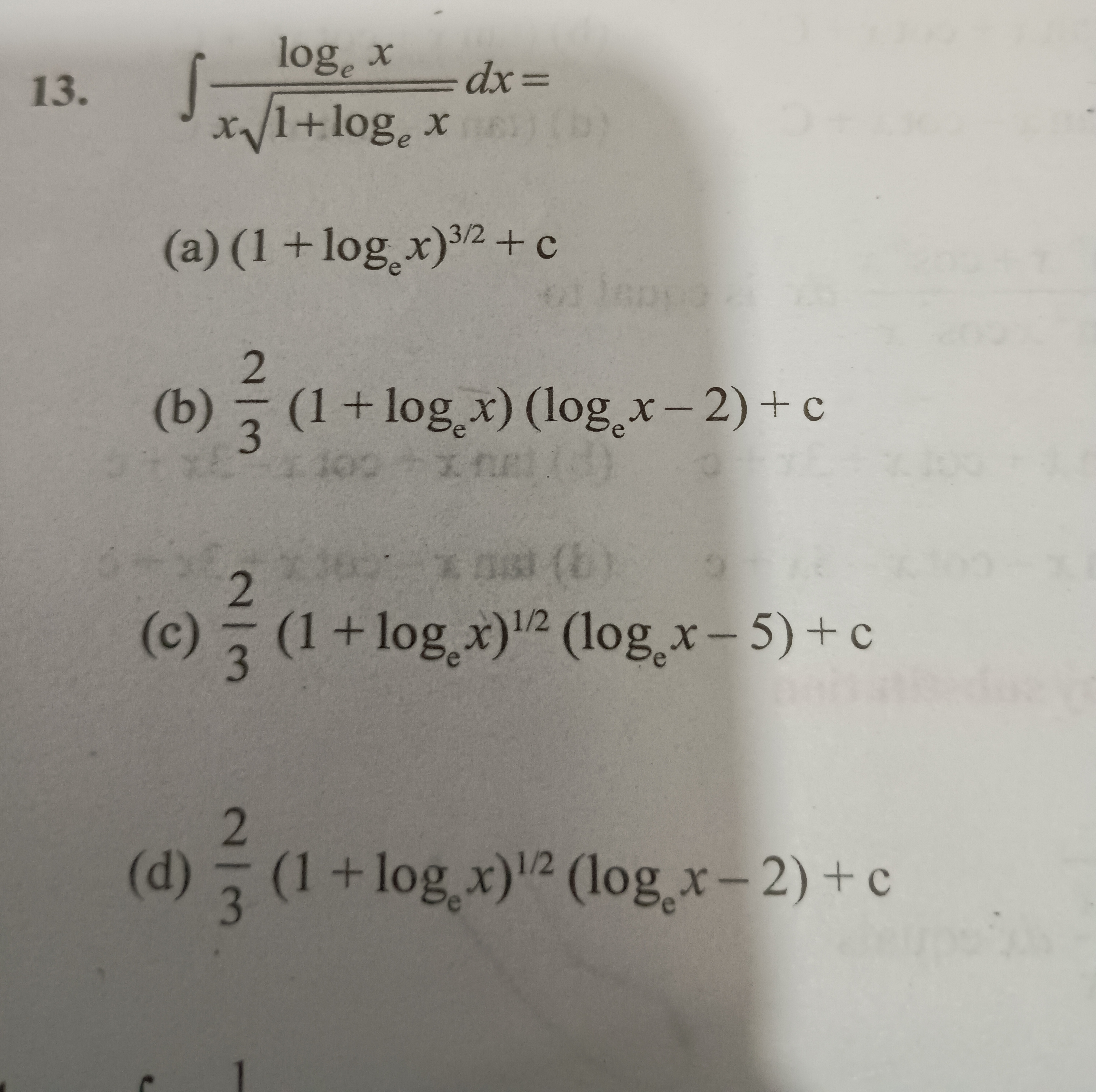Question
Question: $\int \frac{\log_e x}{x\sqrt{1+\log_e x}}dx=$...
∫x1+logexlogexdx=

(1+logex)3/2+c
32(1+logex)(logex−2)+c
32(1+logex)1/2(logex−5)+c
32(1+logex)1/2(logex−2)+c
(d) 32(1+logex)1/2(logex−2)+c
Solution
The given integral is ∫x1+logexlogexdx.
To solve this integral, we use the method of substitution. Let t=1+logex. Differentiating both sides with respect to x, we get: dt=x1dx
From the substitution, we can also express logex in terms of t: logex=t−1
Now, substitute these into the integral: ∫x1+logexlogexdx=∫tt−1dt
We can split the integrand into two terms: ∫(tt−t1)dt ∫(t1−1/2−t−1/2)dt ∫(t1/2−t−1/2)dt
Now, integrate each term using the power rule for integration, ∫undu=n+1un+1+C: 1/2+1t1/2+1−−1/2+1t−1/2+1+C 3/2t3/2−1/2t1/2+C 32t3/2−2t1/2+C
Now, substitute back t=1+logex into the expression: 32(1+logex)3/2−2(1+logex)1/2+C
To match the options, we can factor out common terms. The common term is 32(1+logex)1/2: 32(1+logex)1/2[(1+logex)−22⋅3]+C 32(1+logex)1/2[(1+logex)−3]+C 32(1+logex)1/2[logex+1−3]+C 32(1+logex)1/2(logex−2)+C
Comparing this result with the given options, it matches option (d).
The final answer is (d).
Explanation of the solution: The integral is solved using substitution. Let t=1+logex, which implies dt=x1dx and logex=t−1. Substituting these into the integral transforms it into ∫tt−1dt. This simplifies to ∫(t1/2−t−1/2)dt. Integrating term by term yields 32t3/2−2t1/2+C. Finally, substitute t=1+logex back and factor the expression to get 32(1+logex)1/2(logex−2)+C.
